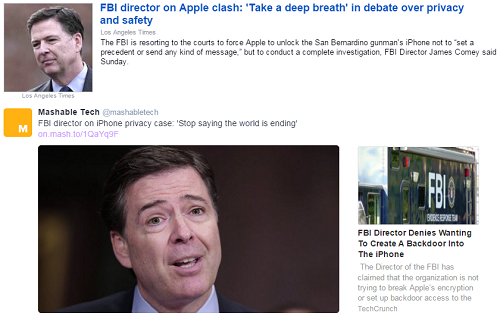Thursday Morning: Don’t Feel Bad
While I am sorry a family has lost their father, I can’t mourn the bizarre passing yesterday of Chesapeake Energy CEO Aubrey McClendon.
McClendon had been indicted Tuesday for price fixing on real estate related to natural gas and oil development. Charges against him had been expected since 2012 when the violations of the Sherman Antitrust Act came to light.
But for a Michigander like me, this is not a remote and abstract story. Property over the Collingwood Shale formation in Northern Michigan was included in collusion between McClendon and Encana Oil & Gas executives to “avoid bidding up” prices. Between Chesapeake and Canadian corporation Encana, the two businesses owned nearly a million acres of Michigan — a chunk of land the size of Rhode Island.
Imagine it: two corporations buying a state-sized mass of land at rigged prices within a state. And all of it with underground water connected to a couple of the largest freshwater bodies in the world, much of it earmarked for fracking.
“Energy visionary“? That’s what other resources leeches might call McClendon, who was at the heart of a dispute over Lake Michigan shoreline property. The land had been willed to “the children” of Benton Harbor by former residents J.N. and Carrie Klock, in memory of their daughter Jean, for use as a public park. In dedicating the land, J.N. Klock said, “…See to it that the park is the children’s.”
It was the only such lakefront park for Benton Harbor, a financially-challenged city with 89% African American residents. But the property adjoined the intended development of a Jack Nicklaus golf course, and the McClendon family as well as other notable figures (like Rep. Fred Upton and Whirlpool CEO Jeff Fettig) lived in the neighborhood of both the intended golf course and Jean Klock Park. The dispute caused considerable heartburn for Benton Harbor residents. It still boggles my mind that wealthy parasites like McClendon simply felt they could ignore the intent of the Klocks’ intentions, their proxies arguing the pricey (read: unaffordable to the average Benton Harborite) golf course would meet the standard of public access.
Note also, that Benton Harbor was among the Michigan cities to which an emergency financial manager had been appointed because of its municipal financial crisis — just like Flint, Michigan.
I can only imagine what other parasitic nonsense will emerge in the debris field left by McClendon. Good riddance to bad rubbish.
Quick hits
- Google’s former CEO Schmidt named to defense advisory board
Eric Schmidt will lead the Defense Innovation Advisory Board, which is “…intended to help the Pentagon become more innovative and adaptive in developing technology and more nimble.” Good luck with that. Important to note Schmidt may be GOOG’s former CEO, but he is the current executive chair of GOOG’s parent, Alphabet. - “Flash Boys” network providers want to build 1000-ft towers in UK countryside
Locals are pissed off at proposals for microwave communications towers intended for use by high frequency traders. Can’t blame their feelings about the eyesores, and wanting to avoid cluttering up historic rolling countryside with technological crap, especially when they have to look at a power plant already. - Big banks across Europe have the blues, struggle to perform
Hey, just a helpful hint: maybe big EU banks never had enough capital to begin with. Maybe they blew capital on the wrong stuff, like unethical business (hello, FIFA?), which in turn ate up profits in hefty penalties. - “Dirty little secret” about Google car crash not really dirty or secret
Author of Computerworld essay claims it’s the lack of intuition that contributed to Google’s self-driving car-meets-bus accident. Nah. It’s the lack of adaptive unconscious humans use to respond rapidly without appearing to engage consciousness fully. - Trap cam captures first golden jackal in Netherlands
Wow. In a nature reserve. They should have set up a trap cam a long time ago near EU’s Too Big To Fail banks in Netherlands.
That’s enough damage for now. Be anti-parasitic and do something nice for others today.

![[image: Jack Amick via Flickr]](https://www.emptywheel.net/wp-content/uploads/2016/02/StopMichSnowFebruary_JackAmick-Flickr-222x300.jpg)
![[image: Jimmy Brown via Flickr]](https://www.emptywheel.net/wp-content/uploads/2016/02/WinterWalkLakeHuron_JimmyBrown-Flickr-300x300.jpg)

![[image: Leo Reynolds via Flickr]](https://www.emptywheel.net/wp-content/uploads/2016/02/LiveJazzFriday_LeoReynolds-Flickr.jpg)